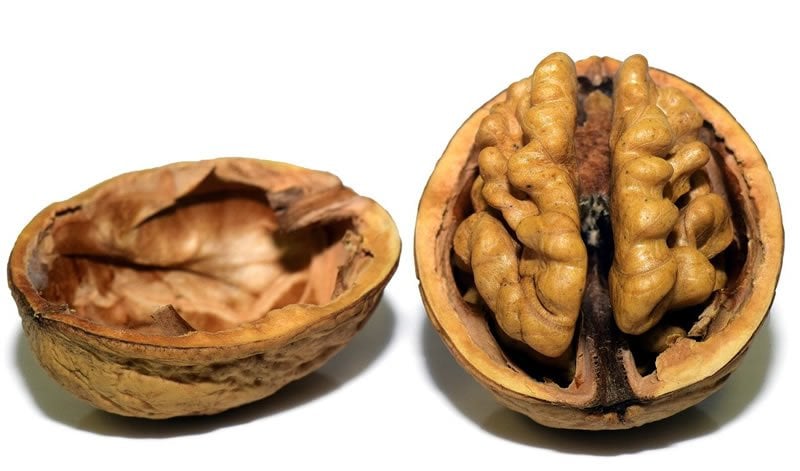Summary: Women in their late 50s and early 60s who eat at least two servings of walnuts per week had an increased likelihood of healthy aging compared to those who did not.
Source: Edelman Seattle
According to a new epidemiological study, women in their late 50s and early 60s who consumed at least two servings of walnuts per week had a greater likelihood of healthy aging compared to those who did not eat walnuts. After accounting for various factors that could impact health in older adults, such as education and physical activity, walnuts were the only nut associated with significantly better odds of healthy aging.
In this study, which was supported by the California Walnut Commission, “healthy aging” was defined as longevity with sound mental health and no major chronic diseases, cognitive issues or physical impairments following the age of 65.
By 2034, for the first time ever, older adults will outnumber children. Baby boomers (those 65 and older) are expected to make up 21% of the population, with more than half being women. The significance of this demographic turning point in our country’s history is clear – research that examines the aging process, including simple, low-cost interventions like healthy food choices, will be especially crucial to healthier lifespans.
Previous research from primary investigator Dr. Francine Grodstein, formerly of Brigham and Women’s Hospital, has found that eating walnuts may have a positive impact on reducing the risk for physical impairments in older adults as well as cognitive decline. Additionally, others in the same research group have found decreases in cardiovascular disease and type 2 diabetes – all conditions that become more common as we age. There is no one solution to slowing down the effects of aging, but adopting the right habits, like snacking on a handful of walnuts, can help.
In this study, Grodstein looked at data from 33,931 women in the Nurses’ Health Study (NHS) to evaluate the association between nut consumption and overall health and well-being in aging. Between 1998-2002, female nurses in the NHS were asked about their diet (including total nut consumption); evaluated for chronic diseases (such as cancer, heart attack, heart failure, stroke, type 2 diabetes and Parkinson’s disease); and assessed for memory concerns, mental health and physical limitations (including daily activities like walking one block, climbing a flight of stairs, bathing, dressing oneself and pushing a vacuum cleaner). Of the study participants, 16% were found to be “healthy agers,” defined as having no major chronic diseases, reported memory impairment or physical disabilities as well as having intact mental health.

Although previous research has connected a healthy diet, including walnuts, to better physical function among older men and women, this study only included women. More research is needed to understand if these results hold true among men. Additionally, participants were not assigned to eat walnuts or other foods; they were simply asked about their dietary choices. It is possible that subjects misreported their dietary intake since this information was collected by questionnaires. As an observational study, this does not prove cause and effect. However, this research sheds light on simple habits that can influence health during later years in life – such as eating walnuts.
Funding: The California Walnut Commission (CWC) supported this research. The CWC has supported health-related research on walnuts for more than 30 years with the intent to provide knowledge and understanding of the unique health benefits associated with consuming walnuts. While the CWC does provide funds and/or walnuts for various projects, all studies are conducted independently by researchers who design the experiments, interpret the results and present evidence-based conclusions. The CWC is committed to scientific integrity of industry-funded research.
Source:
Edelman Seattle
Media Contacts:
Danielle Ballantyne – Edelman Seattle
Image Source:
The image is in the public domain.
Original Research: Open access
“Consumption of Nuts at Midlife and Healthy Aging in Women”. Tania-Marisa Freitas-Simoes, Maude Wagner, Cecilia Samieri, Aleix Sala-Vila, and Francine Grodstein.
Journal of Aging Research doi:10.1155/2020/5651737.
Abstract
Consumption of Nuts at Midlife and Healthy Aging in Women
Background. Nut consumption may reduce age-related diseases and lead to better health and well-being in aging. Many conditions of aging develop over decades, and thus earlier lifestyle factors may particularly influence later health.
Methods. In 1998 and 2002, we administered food frequency questionnaires to assess nut consumption (peanuts, walnuts, and other nuts and peanut butter) in women in the Nurses’ Health Study in their 50 s/early 60 s. In 2012, those who survived beyond 65 years with no chronic diseases, no reported memory impairment, no physical disabilities, and intact mental health were considered “healthy agers.” We used multivariable logistic regression to estimate odds ratios for healthy versus usual aging, controlled for sociodemographic, behavioral, dietary, and other potential confounding factors.
Results. Of 33,931 participants at midlife, 16% became “healthy agers.” After age adjustment, we observed a significant association between total nut consumption at midlife and higher odds of healthy aging, with strongest associations observed excluding peanut butter (odds ratio (OR) = 1.46, 95% confidence interval (CI) 1.32–1.62, ≥3 servings/week versus none). Findings were attenuated after further control for covariates, including overall diet quality (OR = 1.14, 95% CI 1.02–1.28, trend = 0.05). For nut types, we found statistically significantly higher odds of healthy aging across peanuts, walnuts, and other nuts after age adjustment. After full control for confounders, only walnut consumption remained associated with healthy aging ( trend = 0.0001); for example, the OR was 1.20 (95% CI 1.00–1.44) for ≥2 servings/week versus none.
Conclusions. Women consuming nuts at midlife have a greater likelihood of overall health and well-being at older ages. Nut consumption may represent a simple intervention to explore and promote healthy aging.






